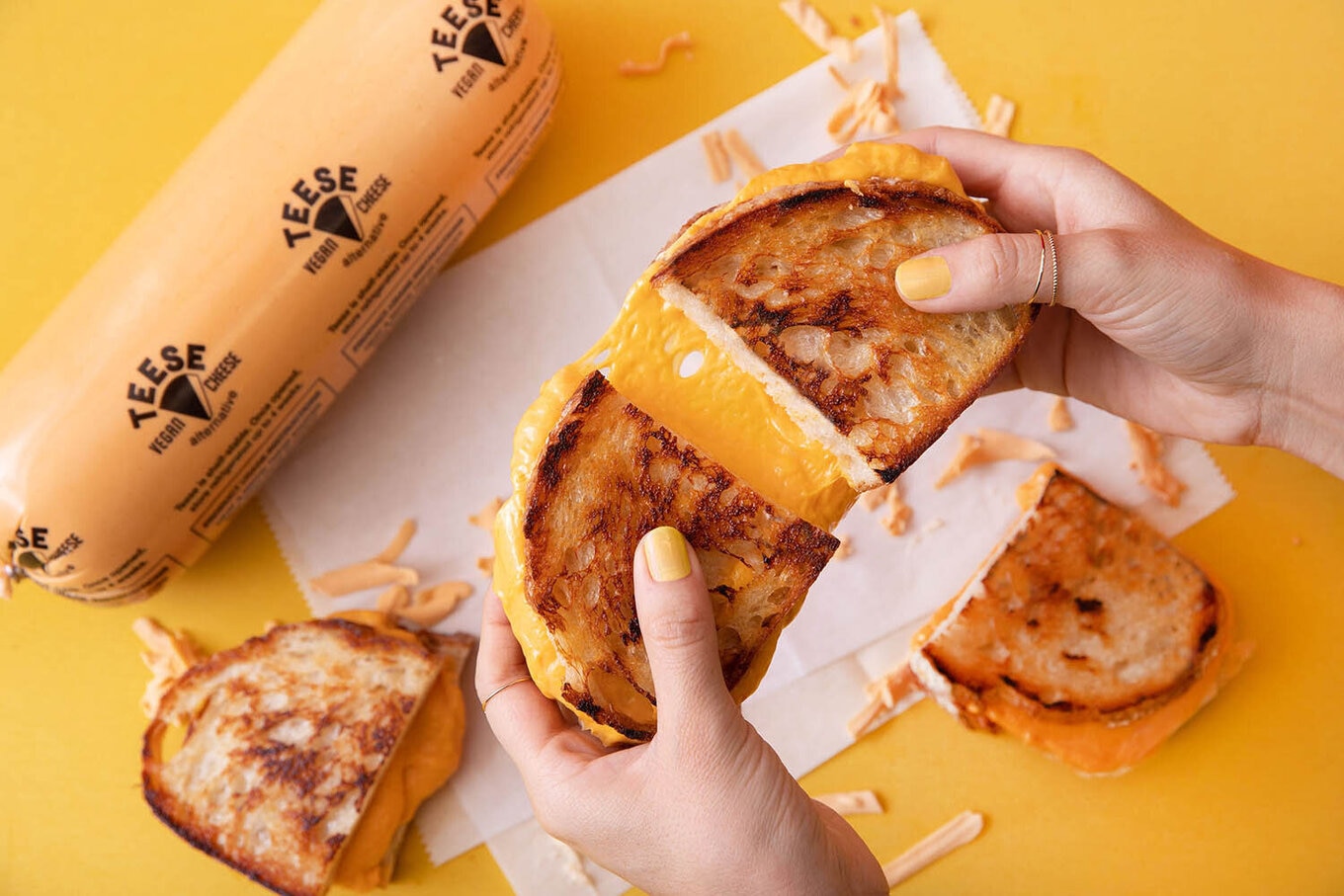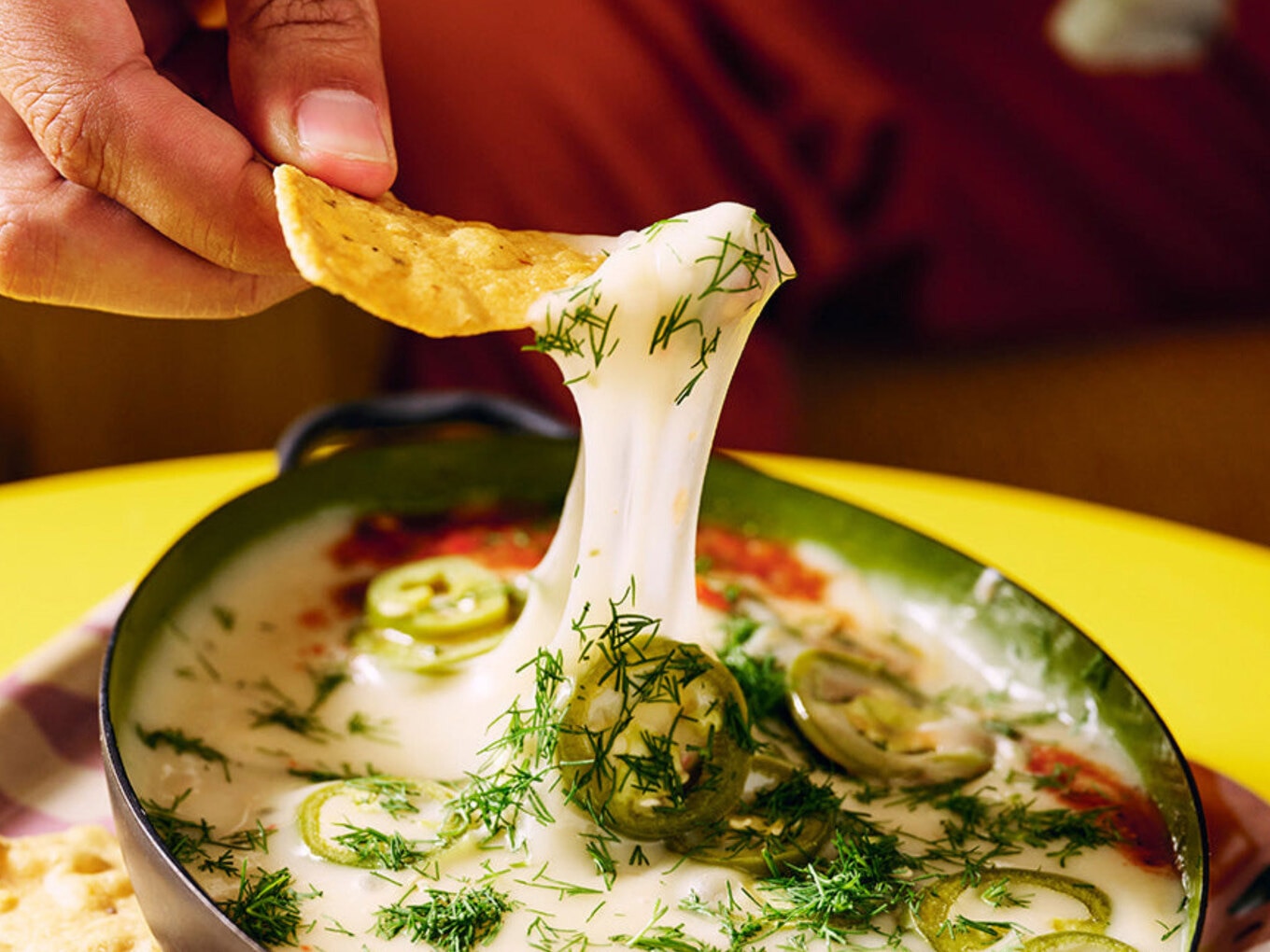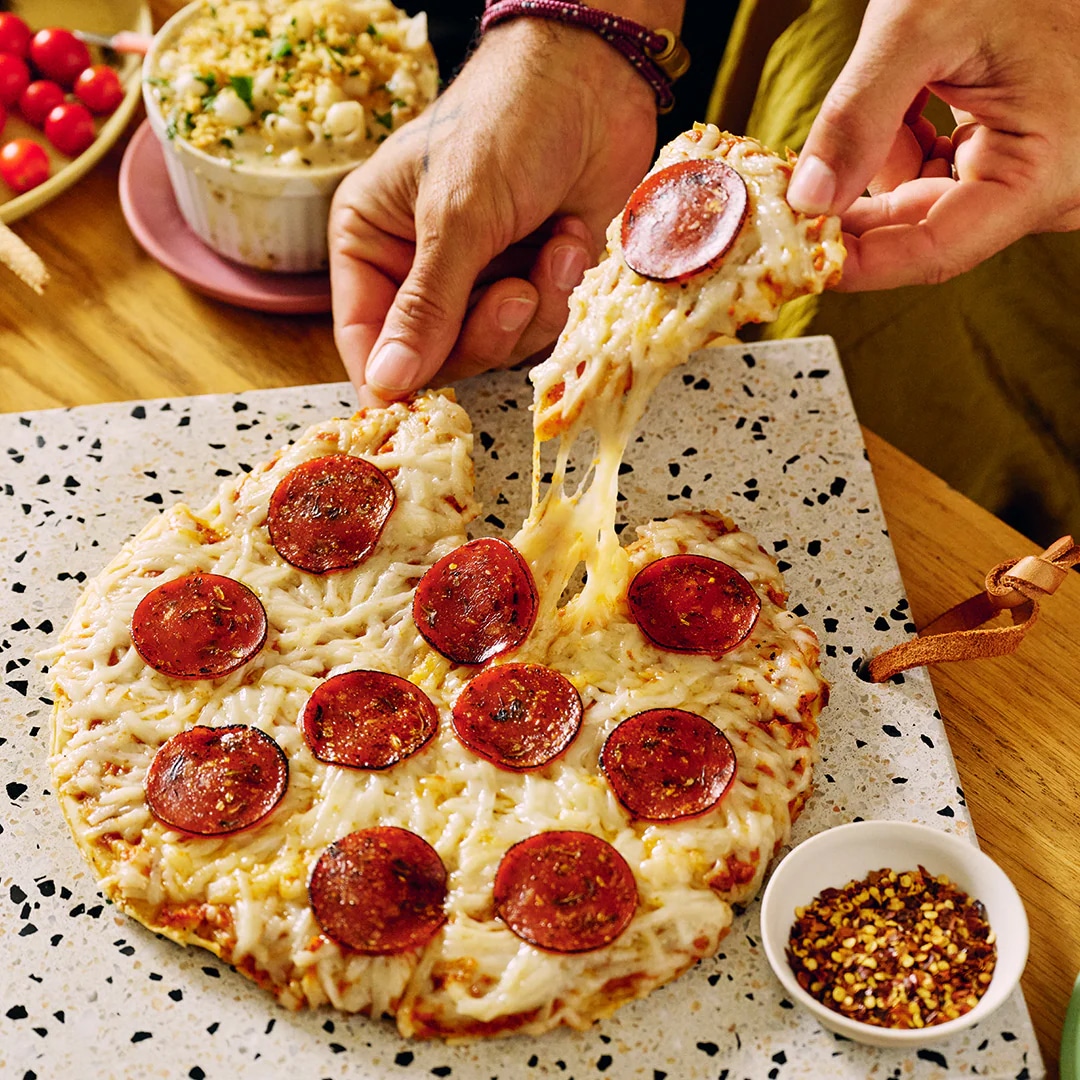Dairy alternate options are in excessive demand; in 2023, the worldwide marketplace for dairy alternate options was estimated at $35.6 billion and is projected to succeed in $75.3 billion by 2030, in response to current information. However, regardless of this progress, producers face challenges in replicating the creamy texture and melting properties of conventional dairy cheese.
To handle these challenges, researchers on the College of Guelph in Ontario and Canadian Mild Supply Inc. in Saskatchewan, Canada are creating plant-based cheeses that they are saying mimic the traits of dairy cheese whereas providing improved well being advantages.
 Teese
Teese
Alejandro Marangoni, a number one researcher within the research, highlighted the complexity of assembly client expectations: “Now, customers count on primarily the identical animal product however with plant-based substances, which could be very troublesome.”
The analysis focuses on understanding how varied plant-based proteins work together with different cheese constructions, significantly regarding melting habits, stretchability, and oil launch throughout heating. Marangoni famous the data hole on this space: “The habits of milk proteins and meat proteins in all fairness properly understood, however data concerning the performance of plant proteins is missing.”
 Daiya
Daiya
Earlier research recognized a mix of 25 % coconut oil, 75 % sunflower oil, and pea protein as efficient in making a fascinating cheese texture. Constructing on this, the present analysis examined isolates from lentil protein, faba bean protein, and a particular pea protein, analyzing their interactions with oil and the starch matrix in cheese alternate options.
Findings revealed that growing coconut oil content material enhanced the hardness of the cheese. Notably, formulations with pea protein and 25 % coconut oil achieved the firmest texture, attributed to distinctive protein-fat interactions. This mixture matched or exceeded the melting, oil loss, and stretch properties of cheese analogs made with 100% coconut oil.
 Daiya
Daiya
Using a mix of sunflower and coconut oils additionally diminished the saturated fats content material, leading to a more healthy and extra sustainable different to each dairy and present plant-based cheeses. Marangoni emphasised the aim of enhancing dietary profiles whereas sustaining performance: “In the end we wish to enhance the vitamin, improve the protein content material, and decrease the saturated fats content material of cheese alternate options.”
Past dietary issues, the environmental affect of standard cheese manufacturing is important. Dairy farming requires giant quantities of land, water, and feed to maintain cattle, contributing to deforestation, water air pollution, and habitat loss. Moreover, dairy cows produce methane, a potent greenhouse fuel, as a part of their digestion course of. Based on the Meals and Agriculture Group (FAO) of the United Nations, cheese has a better carbon footprint per kilogram than most different protein-rich meals, with estimates ranging between 8 and 15 kilograms of CO2-equivalent emissions.
Against this, plant-based cheese alternate options usually have a a lot decrease environmental affect, as they require fewer pure sources and generate considerably fewer greenhouse fuel emissions. Transitioning to non-dairy cheese choices might play a significant function in lowering the general carbon footprint of the worldwide meals system whereas additionally supporting extra sustainable agricultural practices.
For extra plant-based tales like this, learn:
